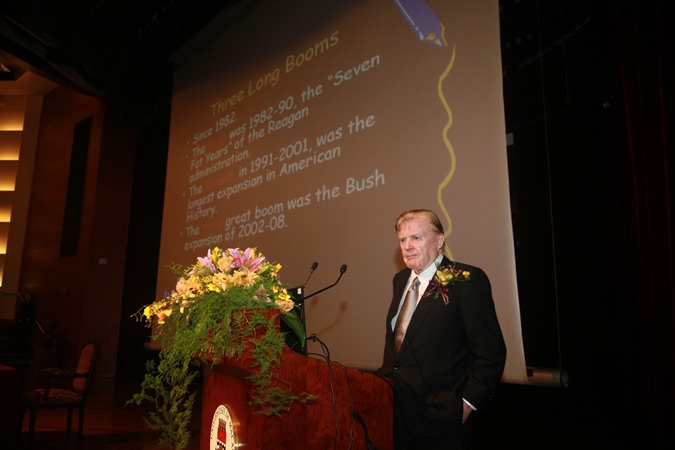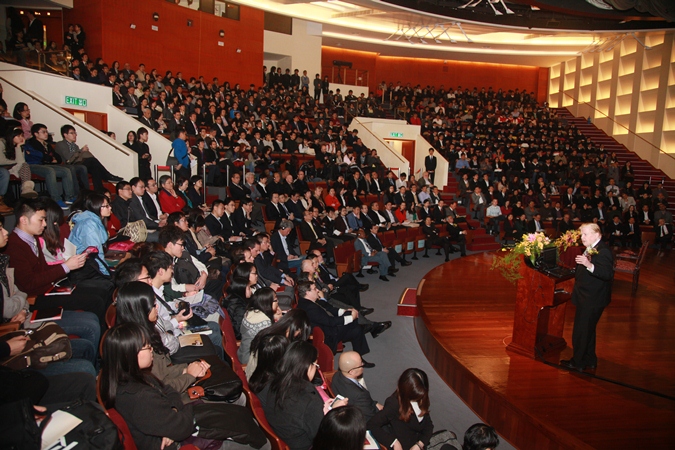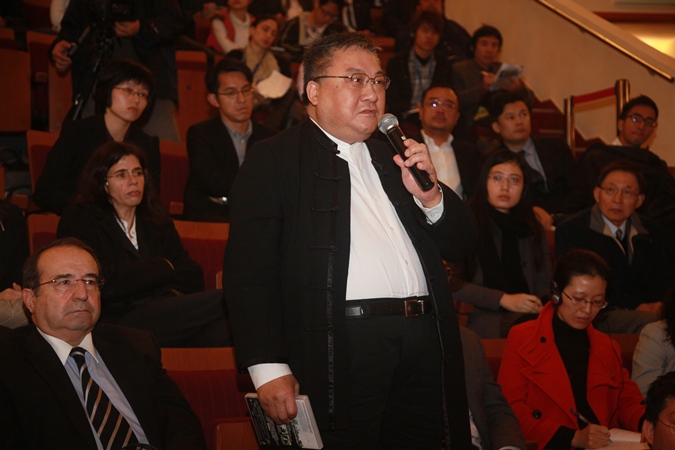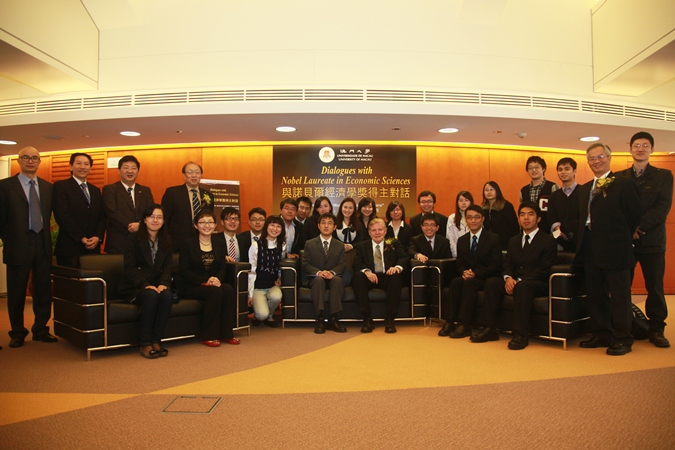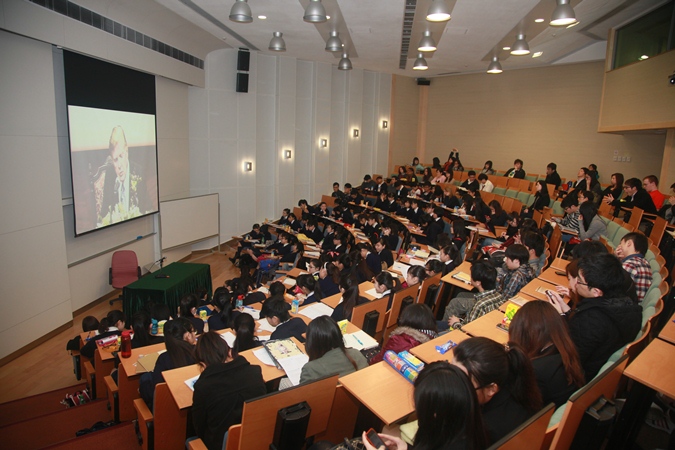At the invitation of the University of Macau (UM), Nobel laureate in economic sciences Prof. Robert A. Mundell today (23 February 2012) gave a seminar at UM on the European Debt Dilemma and Its Impact on East Asia and World Economy. The seminar attracted over a thousand and two hundred people, including journalists, teachers and students from local universities and secondary schools, practitioners from the financial and banking sectors, government officials, and representatives from various organizations.
The seminar was organized by UM’s Asia-Pacific Academy of Economics and Management, with assistance from UM’s Faculty of Business Administration. It is part of a series of UM-organized academic events from January to March this year. During his welcome speech, UM’s Vice Rector (Academic Affairs) Prof. Simon Ho shared some background information about Prof. Mundell. Prof. Mundell has published many books and papers on the history of international monetary system and theories of international economics. He played such a pivotal role in the introduction of the Euro that he is considered “the father of the Euro” and “the father of the theory of optimum currency areas”. He won the Nobel Memorial Prize in Economic Sciences in 1999 for his analysis of monetary and fiscal policy under different exchange rate regimes and his analysis of optimum currency areas.
At the seminar, Prof. Mundell analyzed the global financial landscape, and explained the causes and effects of financial crises from a historical point of view, with a wealth of background data on many countries. He also proposed solutions and envisioned the economic future of China, Europe and the U.S. In his opinion, countries around the world should work together to establish an international monetary system to promote world peace and offer a good framework for world economy. He cited the example of Renminbi, saying that China should consider forming a monetary alliance with Europe and the U.S. in order to maintain a stable foreign exchange rate of Renminbi and alleviate instability in the exchange rates between MOP and HKD on the one hand, and foreign currencies on the other. Many audiences seized the rare opportunity to ask questions during the Q&A session.
The seminar was preceded by a special session called “Dialogues between Nobel Laureate in Economic Sciences and Post-secondary Students from Zhuhai and Macao”. Prof. Mundell patiently answered questions from the students. Participating students described the opportunity to discuss questions face-to-face with a Nobel laureate as excitingly “rare”, saying that Prof. Mundell’s insightful views on the development of world economy have expanded their international perspective.

